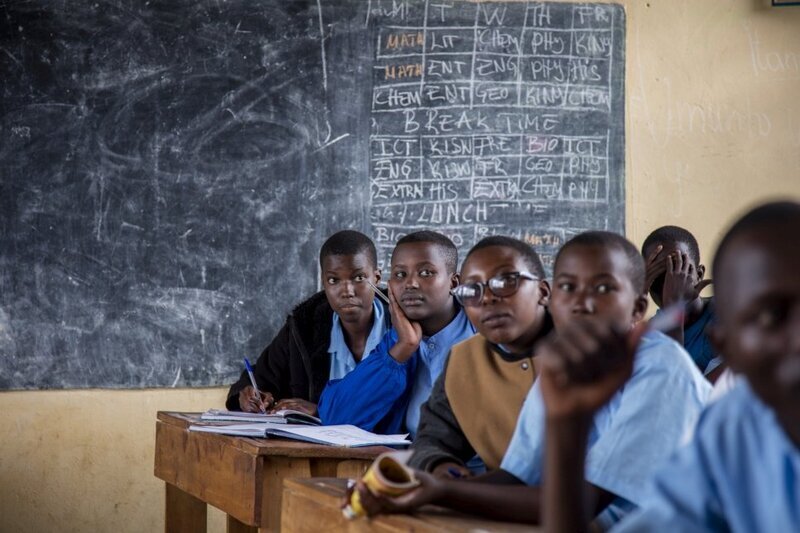
EU adopts new rules to significantly cut packaging waste with re-use targets
The European Union has formally adopted a regulation on packaging and packaging waste. The new ...

Educating all refugees worldwide requires a total cost of about $ 4.85 billion annually according to pre-Covid 19 estimates, the World Bank and UNHCR said in a joint report.
The average annual cost of educating refugees is less than 5 percent of public education expenditure in developing nations hosting 85 percent of the world’s refugees, the report said.
The principle of inclusive education, in this case, opening education up to all refugee children and their inclusion into national education systems can also lead to better services for local communities in host countries. This can be achieved at an estimated annual cost of $4.85 billion globally. This is a pre-COVID estimated cost of educating all refugees and is likely to increase as the impacts of the pandemic continue to unfold.
The Global Cost of Inclusive Refugee Education report provides a standardized methodology to estimate refugee education costs across all host countries. It hopes to catalyze the development of country-level cost refugee-inclusive education plans.
“Wherever they are, children must go to school. Education can help refugee children and youth to succeed despite the severe challenges they face,” said Mamta Murthi, Vice President for Human Development, World Bank. “Providing quality education for all school-aged children in countries affected by fragility, conflict, or violence will require the international community and host governments to come together in the spirit of cost and responsibility sharing, but, as the report finds, it is within our reach.”
At mid-2020 the number of forcibly displaced people globally surpassed the 80 million mark, accounting for one percent of the global population. Among them were 26 million refugees, half of whom are below the age of 18. Many of these children live in protracted crises. They often spend long periods, if not the entirety of their schooling years, in displacement. Educating them is of paramount importance to their future and self-sufficiency.
“Refugee children and youth belong in schools, like all children. For boys and girls forced to flee violence and persecution, inclusion in national education systems means hope and a critical opportunity to define their future, realize their potential,” said Raouf Mazou, UNHCR Assistant High Commissioner for Operations. “Our study clearly shows that this is possible with a genuine commitment and with what is a manageable price tag in the global context.”
The report provides a “what it would take” figure rather than international commitments and obligations or current domestic expenditure on refugee education. Challenges remain in funding refugee education adequately, sustainably, and in a coordinated manner. There is an urgent need to improve the coordination of education financing in fragile and conflict-affected situations.
Funding is not the only condition for universal access and completion of education. While the report is focused on estimating the cost of access to education for refugee children, the importance of improving the quality of education cannot be ignored. The eradication of learning poverty, that is, being unable to read and understand a simple text by age 10, applies to host country populations and refugee children alike.
The European Union has formally adopted a regulation on packaging and packaging waste. The new ...
Inaugurating the Abydos Solar Power Plant in the Upper Egypt governorate of Aswan represents a ...
Businesses that fail to adapt to climate risks like extreme heat could lose up to ...


اترك تعليقا